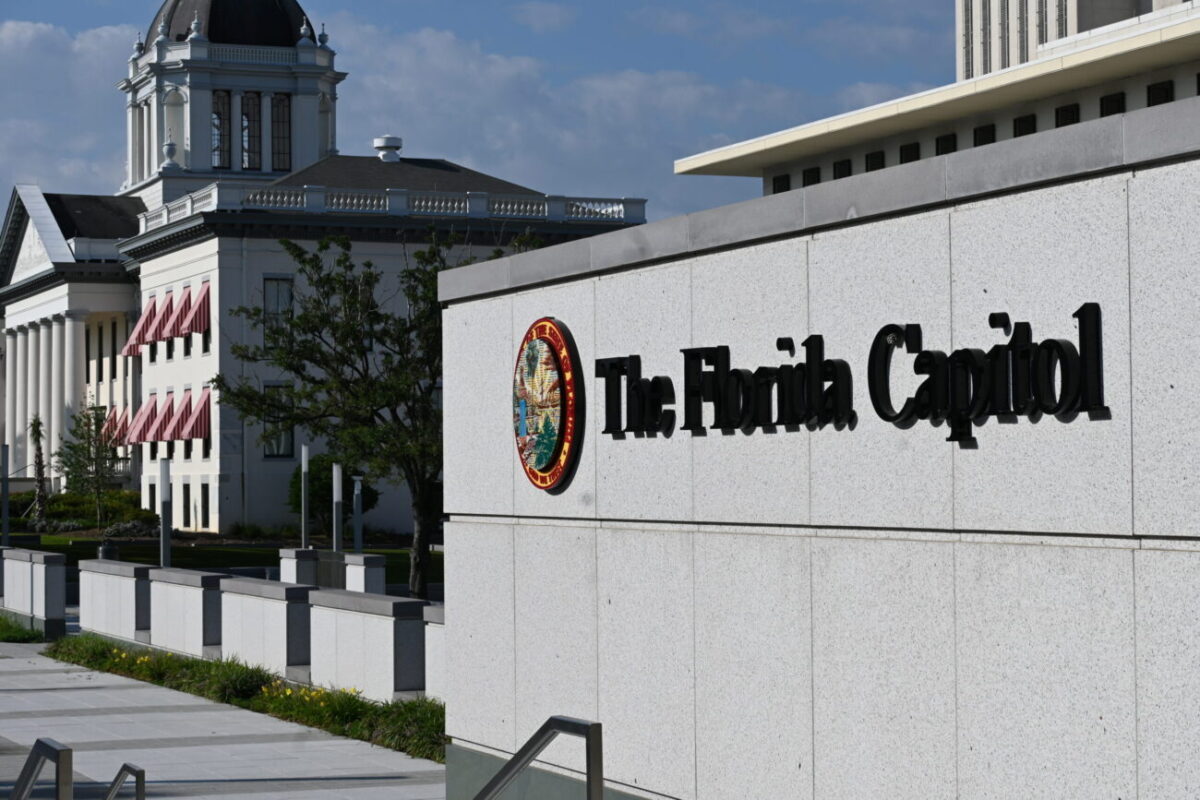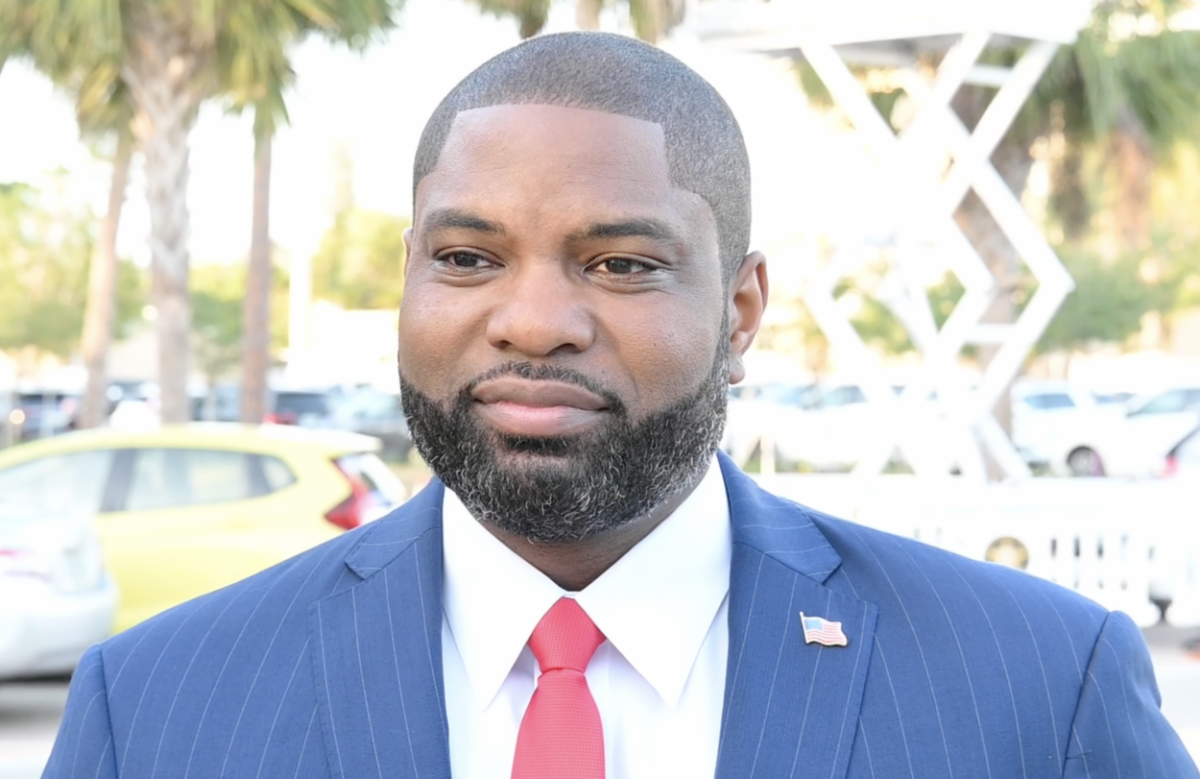TALLAHASSEE --- Florida House Democrats want the state’s next spending plan to be more “people-centered” as Gov. Ron DeSantis prepares to send a full budget proposal to the Legislature.
Democrats said during a conference call Tuesday that they expect the Republican-controlled Legislature during the 2022 session to produce a “generous” budget because it will be an election year. But they said working-class Floridians will see few direct benefits without increased funding for affordable housing, nursing and education, along with other changes to address increasing property insurance rates and revamp a tax structure that prioritizes corporations.
Rep. Anna Eskamani, D-Orlando, said the focus of the new 2022-2023 budget, which is expected to total about $100 billion, should be on benefiting a greater number of Floridians.
"Folks called Florida a low tax state. Unfortunately, it's also a low benefit state, meaning that the Floridians who pay much of their income to taxes, they don't see the improvements in affordable housing, they don't see the access to social safety nets, health care,” Eskamani said. “They don't see action on climate change. They don't see action on mental health or substance-abuse prevention or paying teachers better. So, we want to make sure that not only do we fight for a more equitable tax system, so that the money that comes into our coffers from those everyday people actually goes right back to them."
DeSantis is expected this week to release his budget proposal, which will serve as a starting point as lawmakers negotiate a final spending plan during the session that starts Jan. 11.
During an appearance Tuesday in Oldsmar to discuss a resiliency funding proposal, DeSantis said the state has “the lowest per-capita tax burden in the United States.”
“We are doing things that matter that are helping Floridians across the board,” DeSantis said. “And we're being very aggressive on that. But yet, at the same time, our budget will come in at less than half of the budget of the state of New York, which is the closest state to us in population."
DeSantis, who has been trickling out budget proposals related to issues such as the environment, education and law enforcement, said Floridians should be proud of historic “healthy budget reserves.”
However, House Democrats said the state needs to help families by lowering costs for early education, child care, health care, elder care and housing, as the current fiscal-year budget and the one that will be crafted in the upcoming session are bolstered by federal pandemic stimulus money.
“The governor's budget proposal needs to take a page out of our President Joe Biden's Build Back Better agenda by investing in the people of the state, not corporations,” Rep. Angie Nixon, D-Jacksonville, said. “We must redirect the tax burden shouldered by hard-working families back to the wealthy corporations that have gotten out of paying their fair share for decades.”
Rep. Carlos Guillermo Smith, D-Orlando, pointed to “skyrocketing” housing prices.
"Right now, Florida is the seventh least-affordable state in the country when it comes to median home prices compared to the median income," Smith said. "We know that that problem is most acute and most dramatic, certainly in our largest metro areas. In Central Florida, where I represent, for example, foreclosures are up 17 percent. We're seeing that rents have already increased in the metro Orlando area by 20 percent since just January, and they're continuing to rise. And that's on top of the fact that the metro Orlando area is already the least affordable in the country when it comes to finding affordable housing."
In June, DeSantis signed a bill that divvied up more than $400 million in documentary-stamp tax dollars that, in the past, had been targeted to what is known as the Sadowski Trust Fund for affordable housing. The new law directed $200 million to affordable housing, with the remaining money split between sewage-treatment projects and efforts to combat sea-level rise.
Smith said the Legislature since 2001 has swept $2.3 billion from affordable housing trust funds to use for other purposes.
"We are advocating that we go beyond just fully funding what the new Sadowski Housing Trust Fund calls for," Smith said. "We believe that all Floridians deserve the freedom to know that if they work hard and get a good-paying job that they can afford a home for their family and not be housing unstable."
Among DeSantis’ funding proposals already introduced:
--- A $1 billion gas tax “holiday” that would eliminate state gas taxes for about five months.
--- $660 million for Everglades restoration.
--- $600 million to increase the pay of educators.
--- $270 million for coastal resiliency efforts.
--- $124 million to increase base pay for correctional officers at state prisons and more than $1 million to increase salaries of the state’s special-risk firefighters by $2,500 a year.
--- $98.6 million to expand the National Guard’s Miramar Readiness Center, build three new armories across the state, upgrade existing armories and build a new headquarters for the guard’s counter-drug program.
--- $73 million to increase pay for officers at the Florida Highway Patrol, the Florida Department of Law Enforcement and the Florida Fish and Wildlife Conservation Commission. Minimum pay for entry-level officers would increase by 20 percent, while salaries of veteran officers would go up 25 percent.
--- $50 million for projects related to natural springs.
--- $50 million to protect coral reefs.
--- $40 million for alternative water-supply projects.
--- $35 million to combat harmful algae blooms.
--- $11 million to raise the minimum pay of Department of Juvenile Justice detention officers to $17 an hour and juvenile probation officers to $19 an hour.
--- $3.5 million to re-establish as a 200-member force the Florida State Guard, which was a defense force set up during World War II to replace Florida National Guard members who were deployed abroad.
Jim Turner is a reporter with the News Service of Florida.
Javier Manjarres contributed to this story







